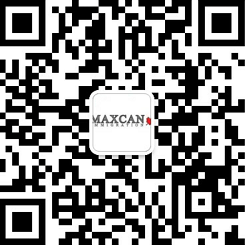

Family based humanitarian program for Colombians, Haitians and Venezuelans
Posted on 26/11/2023
Are you from Colombia, Haiti, or Venezuela? You may be eligible for a new Family-Based humanitarian program that will provide a pathway to permanent residence in Canada for you and any immediate family members that wish to travel with you. The program will help cover most – but not all – of the costs and will waive the permanent resident fee, as well as provide links to support services before travelling to and after arriving in Canada.
Here’s how it works.
Up to 11,000 nationals from Colombia, Haiti, and Venezuela will be brought to Canada as permanent residents.
Who qualifies?
To qualify, however, you must:
- Be a Colombian, Haitian, or Venezuelan citizen
- Be living in Latin America (South & Central America & Mexico) or the Caribbean when you apply
- NOT be moving to Quebec, which has declined to participate in this program
- Have what is called an anchor living in Canada to support your application and arrival who:
-
- Is 18 or older
- Is a Canadian citizen or permanent resident
- Is directly related to you – your spouse, common-law partner, child, grandchild, parent, grandparent, or sibling (brother or sister)
- And who is NOT:
-
-
- In jail or convicted of a crime
- Having their Canadian citizenship revoked or being deported
- Late or in default of immigration loans or sponsorship undertakings
- Someone whose bankruptcy has not been discharged
- Receiving social assistance for anything other than a disability
-
-
- And your anchor CANNOT accept any payment or money from you. An anchor is NOT a paid service. It must be done for free.
- Your anchor will have to promise to support you for 1 year and have to sign a document where they promise to:
-
- Meet you at the airport when you arrive in Canada
- Provide or help you find housing
- Ensure your basic needs are met (food, clothing, etc.) and introduce you to how life functions in Canada – public transport, banking, shopping, your rights and responsibilities etc.
- Interpret (translate) for you
- Help you open a bank account
- Help you sign up to a provincial health program and get your Social Insurance Number (SIN)
- Find a family doctor, dentist etc.
- Enroll any children in school
- Help you find English or French language training programs (especially free ones)
- Help you navigate this website that searches for support services in your local community
How to Apply Online
Go here to access the Permanent Residence Portal and register. Click on the link on the right that says Create a Permanent Residence Portal account button to register. You will use this online portal to upload your documents and forms electronically (using your computer) and submit your application.
Read through the online guide found here before you start to fill out your application. Make sure you read the checklist carefully to see what you need:
You’ll need to fill out the following forms which are found directly in the portal:
- Form IMM 0008 – Generic Application Form
- Form IMM 5669 – Schedule A – Background/Declaration
- Form IMM 5406 – Family information
You’ll need to download and fill out the following PDF forms:
- Form IMM 5989 – Schedule 1 (required)
- Form IMM 5476 – Use of a Representative (only if this applies to you)
- Form IMM 5475 – Authority to release personal information (only if this applies to you)
Go here to find the 3 PDF forms listed above.
Your anchor will need to download and fill out and sign the following form:
- Form IMM 5990 – Statutory Declaration (PDF)
You will also need the following supporting documents:
- A photograph of you and each of your family members. Go here to see the specifications for your photos.
- Identification (ID) documents for you and each of your family members.
- Any other documents required in the guide – including:
-
- Diplomas
- Proof of relationship documents that show the relationship with your anchor
- Police certificates
- Travel documents including passports (if available)
- Membership cards
- Military documents
You will NOT need to complete a Medical Exam before you apply but you will have to have an exam later on during the application process in order to obtain permanent residence in Canada.
- Go here for information on medical exams in general as well as information on finding a qualified doctor – called a panel physician
You may need to give biometrics (photographs and digital fingerprints). Go here to see if you need to give biometrics.
- If you need to give biometrics you will receive a Biometrics Instruction Letter (BIL) with instructions. Bring the letter with you when you go to your nearest biometrics collection point.
How to apply on paper (or Braille or Large Print)
- Start a new email
- In the subject line write the format you wish (paper, braille, or large print) AND the application package you need (Family-based humanitarian program for Colombians, Haitians, and Venezuelans)
- In the body of the email write the following:
-
- Your full name exactly as written in your passport
- Your anchor’s full name
- A statement saying you’re asking for an alternate format for your application: paper, braille, or large print
- Whether you want it sent to you by mail or email
- If you choose email, you’ll have to download and then print the application package and then fill it in
- Send your email to the following address:
IRCC.PRPortalALTRequest-DemandeALTPortailRP.IRCC@cic.gc.ca
- For more information you can call the following number:
1-888-242-2100
Before you Submit your application:
Make sure you have:
- Completely and accurately filled out all the forms
- Uploaded all your supporting documents
- Electronically signed your application
-
- Do this by simply typing your full name exactly as shown on your passport in the field (box) requesting your signature when you apply online.
- Sign your application normally if you are applying on paper
After you apply
Your application will be reviewed and checked to make sure it is completed and has been signed. If so, you will receive an email (or mail) called an Acknowledgement of Receipt (AOR).
- If your application is not complete you won’t receive an AOR, and your application will be returned to you without being processed.
- If you receive an AOR you can then check your application’s progress through the Permanent Residence Portal you registered with at the beginning of your application process.
- You can get status updates. Go here for more information on how to use the client application status online tool.
- Once you have been assessed as eligible you will have to take a medical exam. Your medical exam will be paid for by a medical insurance program called the Interim Federal Health Program (IFHP). Go here for information on IFHP and how to get your eligibility document that will allow you to access your medical exam for free.
-
- Remember to sign your eligibility document and show it to the physician who will be giving you your medical exam. Otherwise you may to pay for your medical exam.
- Your application will be assessed for eligibility and admissibility in accordance with IRCC’s standard criteria. You may be asked to go to an interview. If you are you will give biometrics at the interview.
If you are Approved
You have to pay your travel costs to Canada. However, you can get an interest-free transportation loan from the International Organization for Migration (IOM).
- Although it is interest-free, you will be charged CAD 300 for this service by the IOM.
- You will be interviewed by an IRCC officer to see if you qualify for this loan and will have to fill out form IMM 0502 – Terms and Conditions of loan form.
- The officer will assess your ability to repay the loan after arriving in Canada.
- IOM can also help you plan your trip and help you organize your trip. To request this service from IOM, remember to check the box in form IMM 5989 – Schedule 1 that states you want to access services provided by the IOM.
Most importantly, if you are approved, you will be issued:
- a visa in your passport or a travel document with which you can travel to Canada
- a Confirmation of Permanent Residence (COPR)
You’ll need both to enter Canada so make sure you don’t lose your COPR.
Finally, if you are approved, remember to apply for an exit visa if your country of residence requires it.
Arriving in Canada
Before you depart for Canada, remember to find out about pre-arrival settlement services offered to permanent resident newcomers to the country. Go here to find more about these services which will help inform you about settling in Canada, finding a home, finding a job, as well as other aspects of life in Canada.
Once you arrive in Canada:
- You’ll get information on how to apply for a one-time payment to help you with your costs of getting settled in.
- There are free language training classes in many cities (English and French)
- There are job-seeking services for free as well.
- Go here for information on these type of free services.
Please remember to use the IRCC web form found here to update your personal information as soon as it changes. This includes things like: current living addresses, email addresses, phone numbers, marital status, and other information on your family members accompanying you.
Finally, your Permanent Resident Card will be mailed to your permanent address in Canada within a fairly short time of your arriving. Please remember to go here to send your permanent address in Canada to the IRCC as soon as possible.
Posted in News Tips and tagged Humanitarian sponsorship




